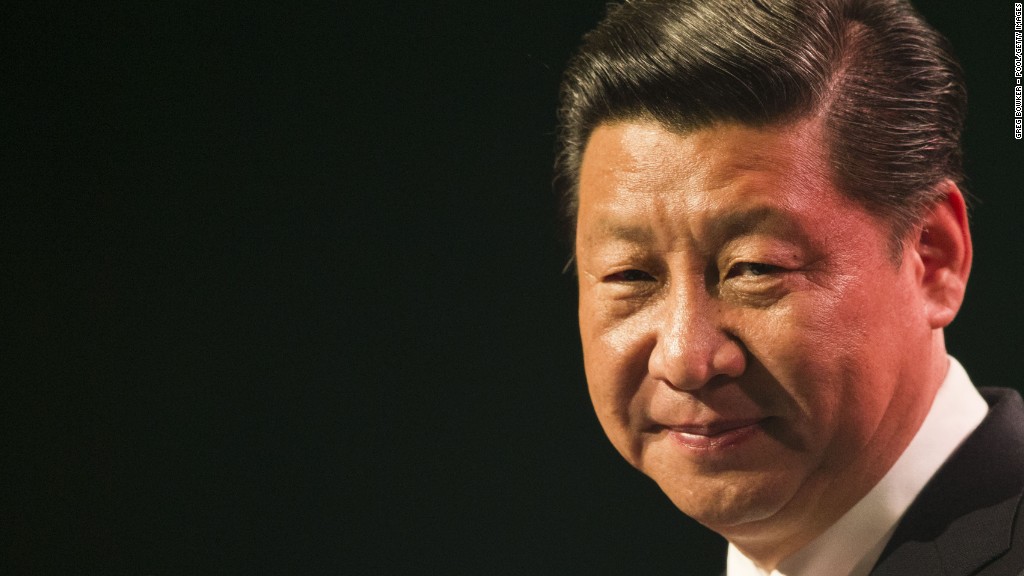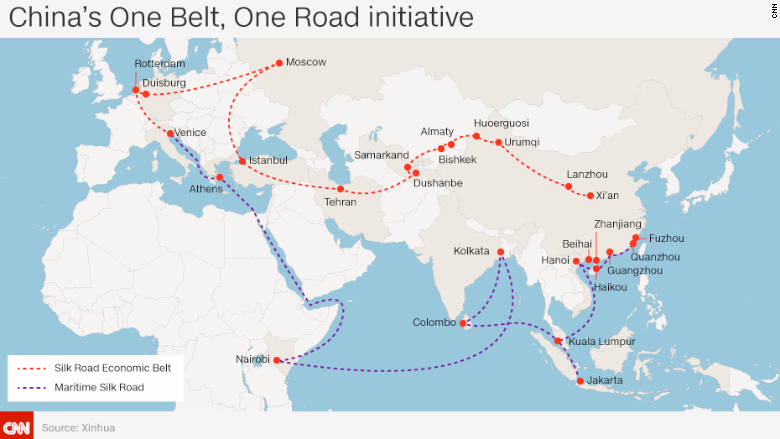
Big loans from China can come with big headaches.
A new report says China's massive plan to pump hundreds of billions of dollars into ports, rail lines and other projects across Asia, Europe and Africa could pile debt problems onto smaller countries.
Loans from China's Belt and Road Initiative "will significantly add to the risk of debt distress" for eight countries, including Pakistan, Montenegro and Djibouti, according to a report published Sunday by the Center for Global Development, a US-based nonprofit think tank.
"Belt and Road provides something that countries desperately want -- financing for infrastructure. But when it comes to this type of lending, there can be too much of a good thing," John Hurley, a visiting fellow at the center and coauthor of the study, said in a statement.
Related: Asia wants some of Trump's infrastructure billions
Pakistan is "by far the largest country at high risk," the center says. Its report estimates China is financing about $50 billion worth of infrastructure and energy projects in Pakistan.
"Adding to Pakistan's risk of debt distress are the relatively high interest rates being charged by China," it warned.
The authors also attempted to estimate the growing indebtedness to China of the other seven countries, although they caution that China doesn't report its foreign lending "in a systematic or transparent manner."
In Djibouti, 82% of the country's external debt was owned by China at the end of 2016, according to the report.
In Kyrgyzstan, the authors estimate China's share of the country's debt could spike from 37% at the end of 2016 to 71% in the coming years, based on the Belt and Road projects it has in the pipeline.

The other nations singled out by the report as vulnerable are Laos, the Maldives, Mongolia and Tajikistan.
If any of them run into problems managing their debts, one concern is that China will be in a strong position to influence their strategic decisions or even gain control of important infrastructure.
Related: India boycotts China's global trade jamboree
In 2011, China reportedly agreed to write off debt in Tajikistan in exchange for disputed territory, according to the study. Last year, Beijing worked out an agreement with Sri Lanka over an $8 billion loan, securing a 99-year lease for a newly built port.
China deals with lending problems on a case by case basis rather than following widely accepted "rules of the road" set out by the International Monetary Fund or the World Bank, according to the report.
Instead of spurring growth and economic opportunity, China could be pushing a project that "introduces new debt vulnerabilities in developing countries and risks growth setbacks," the authors wrote.
They suggest other countries and organizations like the World Bank should encourage China to embrace more sustainable lending practices and avoid the dangers of acting as a "go-it-alone" creditor.


